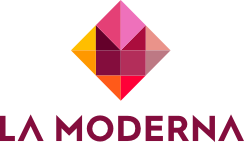As part of the environmental education program, La Moderna is constantly working to strengthen and instill values in favor of a cleaner and healthier planet, based on this, our students of II and III grades in Baccalaureate work to determine the impact of plastics and waste on Ecuadorian coastal beaches in conjunction with the planning program of the Secretariat of the Environment of Ecuador through a project called "Garbage Scientists".
In a day of 3 continuous Saturdays, young people go to the beaches together with some teachers of the institution to carry out sampling of macro garbage; previously they have had the opportunity to participate in projects on microplastics, but not at the coastal level like this one.
Some students have already worked with Macro Trash in the streets and done trash sampling at home, as well as many environmental activists, have counted the amount of plastic they have at home.
The teaching team is trying to identify the diversity of waste that is thrown in the sand and sea, since after the pandemic, masks have occupied the second place of waste mostly thrown in the coastal area.
Among the actions carried out are measuring quadrants, using imaginary lines that help determine not only the impact of this waste, but also of paper, cigarette butts, Tetra Pak, among other elements that may be discarded by beach merchants or neighboring locals, which intentionally or unintentionally, cause great harm to the global ecosystem.
This project is part of the international program CAS (Creativity, Activity and Service) that through RECIBA (Trash Science Network) fulfills the necessary component for the fulfillment of the International Baccalaureate; it involves children in environmental issues giving them the opportunity to become aware and make this a better world through the service it provides to the environment.









